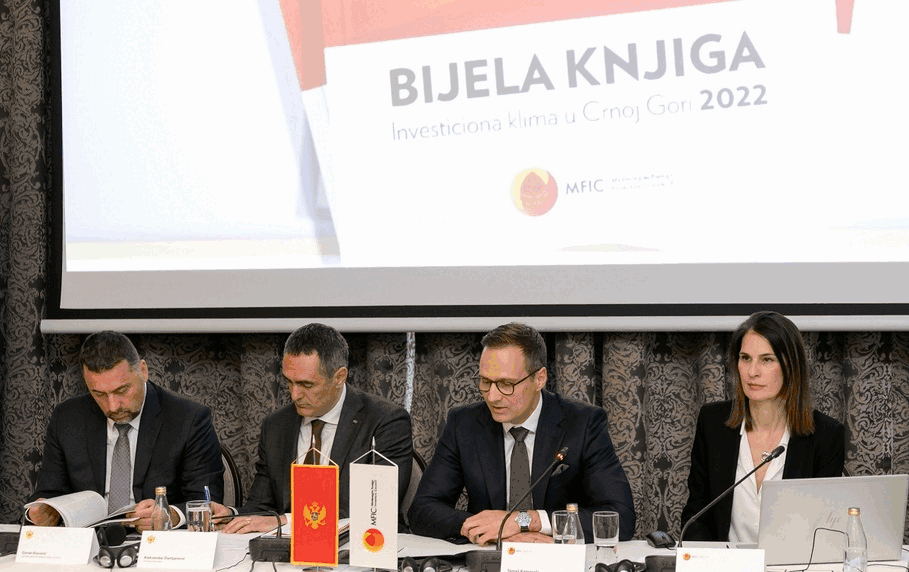At the presentation of the White Book for 2022 Tamas Kamarasi, President of MFIC, Aleksandar Damjanović, Minister of Finance, Goran Đurović, Minister of Economic Development and Tourism, and Arijana Vučinić Nikolić, Executive Director of MFIC, delivered their speeches.
The White Book provides a detailed overview of the business environment in Montenegro from the perspective of foreign investors. Special emphasis is placed on the ease of doing business index, which stands at 6.7% for the past year, with a decrease of 0.3% compared to 2021.
In his speech, Tamas Kamarasi emphasized that only through the substantive implementation of structural reforms and alignment with international and EU standards can we expect an improvement in the business environment and the arrival of credible foreign investors. He stressed that the focus should be on reforms in the areas of rule of law, combating corruption and the informal economy, as well as tax policy, labor market regulation, and digital transformation.
The Minister of Finance and the Minister of Economic Development and Tourism, Aleksandar Damjanović and Goran Đurović, expressed the government’s readiness to improve the business environment together with investors. Minister Damjanović highlighted the need to actively work on key aspects such as the rule of law, contract enforcement, judicial procedures, and spatial planning. Minister Đurović highlighted the positive business results achieved by the economy during the previous year.
The results of the White Book were presented by Arijana Nikolić Vučinić, the Executive Director of the Council. During the presentation, she pointed out that compared to the previous year, there was a decrease of 0.3 in the ease of doing business index, with a score of 6.7 for the year 2022. She emphasized that this was the result of a significant decline in sectoral indices, which ultimately led to a decrease in the overall index. The banking and finance sector recorded the largest decline (-0.9), while the human capital sector experienced the highest growth (0.6). Very low ratings were observed in digitalization of public services (4.8), rule of law (5), and the informal market (5.1).
The Executive Director of MFIC presented recommendations recognized by international institutions, including the more efficient implementation of reforms, further steps to improve tax procedures, significant modernization of cadastral and notary services, creating the foundation for further infrastructure investments, continuation of measures to enhance freedom and flexibility in the labor market, improving education and healthcare policies to create a basis for investment, continuing the policy of improving administrative work and efficiency at all levels, prioritizing digitalization as a developmental and transformational policy, and establishing the basis for a further public finance policy with a particular focus on new investment activities.




